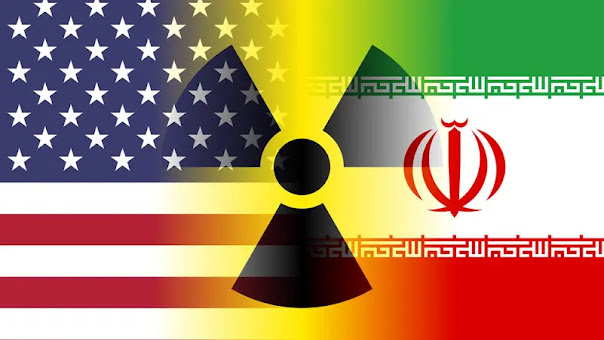In a recent statement, US President Donald Trump expressed his desire to avoid military action against Iran’s nuclear program, emphasizing his preference for diplomacy. Speaking to reporters, Trump stated, “It would be really nice if that could be worked out without having to go that further step,” signaling his hope for a peaceful resolution to one of the Middle East’s most pressing issues. This marks a notable tone as tensions with Tehran continue to simmer, following years of escalated rhetoric and actions.
Trump’s comments come after his first-term decision to withdraw from the 2015 nuclear agreement, also known as the Joint Comprehensive Plan of Action (JCPOA). The deal, negotiated under President Barack Obama, aimed to limit Iran’s nuclear activities in exchange for sanctions relief. However, Trump criticized the agreement as flawed, launching a “maximum pressure” campaign that included sweeping sanctions and targeted strikes, such as the 2020 killing of senior Iranian General Qassem Soleimani. While these moves garnered praise from allies like Israeli Prime Minister Benjamin Netanyahu, they also heightened fears of military confrontation in the region.
Diplomatic Prospects and Shifting Strategies
Despite Trump’s hardline stance during his first term, his recent remarks indicate a possible shift in strategy. The president suggested that diplomatic avenues remain open, adding, “Iran hopefully will make a deal — and if they don’t, I guess that’s OK, too.” Reports also suggest behind-the-scenes efforts to reduce tensions, with key figures like Elon Musk reportedly engaging in discussions with Iranian officials to defuse hostilities. This evolving approach could reflect broader changes within Trump’s administration, as he distances himself from advisors who previously advocated for a more hawkish policy on Iran.
The stakes are high as the international community watches closely. A peaceful resolution would require navigating complex geopolitical dynamics, including Iran’s relations with regional powers like Israel and Saudi Arabia, as well as the roles of global players like Russia and China. Additionally, Trump’s actions will likely influence the future of US-Iran relations and shape his legacy on foreign policy.
The Broader Implications
Trump’s emphasis on diplomacy raises questions about the future of US involvement in the Middle East. While his administration has pursued aggressive policies in the past, the shift toward negotiation signals a potential recalibration of priorities. This could pave the way for renewed discussions on nuclear disarmament and regional stability, though challenges remain.
As the world monitors these developments, one thing is clear: resolving the Iranian nuclear issue peacefully would mark a significant achievement for global diplomacy. Whether this goal can be realized remains uncertain, but Trump’s recent remarks suggest a willingness to explore alternatives to conflict. For now, the focus is on dialogue and the hope that a new chapter in US-Iran relations can emerge.

